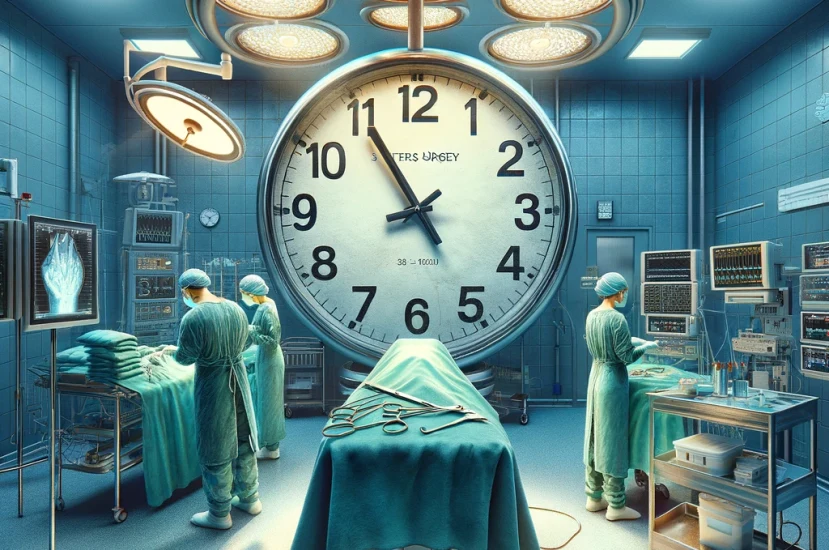Surgery is an important medical procedure that is critical to the health and well-being of many patients. Doctors perform millions of surgeries around the world each year. In 2009, medical practitioners in the US performed more than 48 million surgeries. Unfortunately, being a serious intrusive method, surgery may lead to death because of a number of reasons. For example, the surgeon may puncture a vital organ, anesthetist may apply too much anesthesia, or the targeted area may get an infection.
In the UK, 3.6% of the patients who undergo surgery die within two months after the operation. A new study has some interesting revelations on this medical statistic. More specifically, researchers discovered that patients who undergo surgery in the early morning or at night are two times more likely to die than those who undergo surgery during other times of the day. The study also revealed that those operated on late in the day have a higher risk of dying than those operated on during normal working hours.
In other words, this study by researchers from McGill University in Canada finds that there is a higher mortality rate for surgeries conducted late in the day, at night, or in the early morning hours. The Canadians presented these findings to the 16th World Congress of Anesthesiologists in Hong Kong. It took the researchers 5 years to complete the study. It involved the analysis of 40,000 elective surgeries conducted at Jewish General Hospital in Montreal, Canada. The hospital is an affiliate of McGill University.
The team discovered that patients who went through surgery between 11.30 pm and 7.30 am were 2.20 times more likely to die than those who went through surgery from 7.30am to 3.30pm. The researchers also discovered that patients who went through an operation between 3.30pm and 11.30pm were 1.40 times more likely to die than those who went through an operation during regular working hours.
The Canadians attributed this phenomenon to doctors performing below par at night, during the late afternoon, and in the early morning. This lackluster performance occurred because of fatigue occasioned by overnight staffing issues. Other difficulties faced during such hours included limited operating rooms available and delayed treatment.
This study is a bit scary for most people because you cannot control when you would need emergency surgery. It is especially scary when the need for most surgeries occurs at night. For example, 49% of all severe motor accidents take place at night. It seems, the only commonsensical way to reduce mortality rates for surgeries performed after normal working hours is to change the way hospitals operate. More specifically, hospitals have to improve the assignments of shifts to surgeons so that they do not feel tired when performing a surgery at night.



